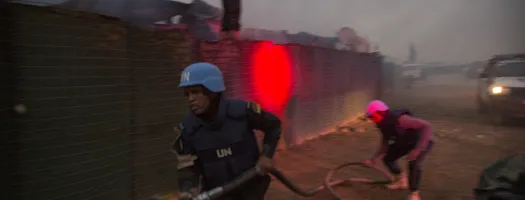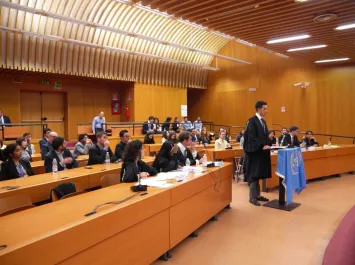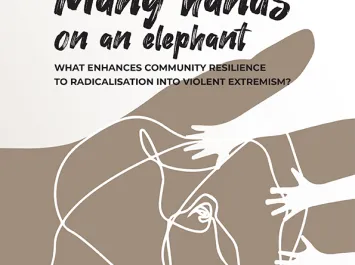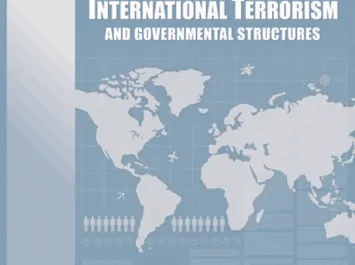Opening the week of UNICRI dedicated to capacity building and advocacy on the nexus between organized crime and terrorism, Antonia Marie De Meo, the Director of the Institute, said: “The nexus represents a growing threat to peace, security and development, globally. Terrorists are taking advantage from transnational organized crime in many contexts and by conducting many illicit activities spanning from the trafficking of arms, persons, drugs, artefacts and natural resources; to the kidnapping for ransom and other crimes including extortion and bank robbery.”
The potential confluence of criminal and terrorist actors, tactics and resources enable them to accumulate financial resources and political traction, allowing them to become more resilient and gain stronger capacities. The convergence between transnational organised crime and terrorism is more likely to happen in weak or failing states thus undermining stability efforts and increasing the risk of cross-border conflicts.
Security Council resolution 2195 of 2014 “Threats to international peace and security” underlines that the frontiers between criminal networks and terrorist groups are blurred and the nexus between their objectives, identities and modus operandi overlap. This is why the Security Council calls upon Member States to better understand and address these security threats.
In response to growing evidence and Member States’ concerns about the links between transnational organized crime and terrorism, and in continuation of the work of UNICRI on the Nexus from 2016, the Institute has established a partnership with the Government of the Kingdom of the Netherlands and the Global Counterterrorism Forum (GCTF) to capitalize on achievements and support the efforts of the international community on this matter. The Nexus initiative seeks to expand on existing knowledge as well as to develop new strategies that can allow for effective interventions where the nexus is present.
Within this framework The Hague Good Practices on the Nexus between Transnational Organized Crime and Terrorism were developed. Following the Good Practices, the Nexus Policy Toolkit was produced to assist Member States in providing an overview of the nexus, and practical implementable steps for consideration by countries in the application of the good practices. The Policy Toolkit on The Hague Good Practices on the Nexus Between Transnational Organized Crime and Terrorism was presented at the Joint special meeting of the Counter-Terrorism Committee, the 1267/1989/2253 Committee and the 1988 Committee on “The nexus between international terrorism and organized crime” in April 2019. The Hague Good Practices on the Nexus between Transnational Organized Crime and Terrorism are also mentioned in the Security Council Resolution 2482.
UNICRI is using the Nexus Policy Toolkit as a training tool for interested Member States. A comprehensive and multidimensional approach centred on coordination and capacity building is fundamental to tackle the nexus.
This week UNICRI, in cooperation with the National Counter Terrorism Centre of Kenya is organizing a Pilot training on the Nexus Policy Toolkit for relevant Kenyan stakeholders. This represents an important capacity building opportunity to share knowledge, good practices and lessons learned. In parallel, UNICRI will conduct a campaign to enhance awareness of this global threat which is undermining stability and development efforts in many countries of the world.



